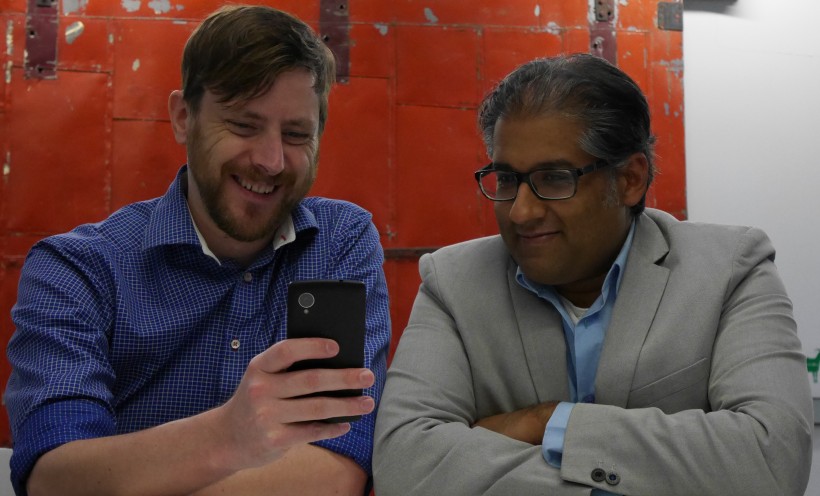Healthcare apps are on the rise, both in popularity and proliferation, but they often have to adhere to medical regulations. That’s why Waterloo-based MedStack is developing a platform that helps healthcare app developers build products that comply with regulations.
“Health and fitness is the single biggest growing category in the app store by a factor of two,” said MedStack Co-Founder Balaji Gopalan. “It’s a $4 billion market today and it’s expected to be a $27 bilion market by 2020.”
Within this emerging field, not all opportunities are equal. There are three distinct types: apps for professional use, apps for personal use and apps that relay information between professional and patient. Due to complex privacy acts regulated by the U.S. and Canadian governments, the last category is significantly more difficult to enter, which can act as a deterrent to innovation.
This is where MedStack comes in. Gopalan and Simon Woodside created the company last winter, inspired by several healthcare projects that Woodside’s app studio Monolith Apps had taken on.
“They kept running in to the same problems when they built these things,” says Gopalan, a Blackberry veteran who was recently involved with high-profile wearable security product Nymi. “So they realized, there’s got to be a platform opportunity here.”
Once Woodside had identified this opportunity, he asked Gopalan to join him on the business side, and the two set out to create a product that resembles consumer stack platforms such as Parse and Heroku.
Users will be able to drag and drop in compliant modules for things such as secure messaging, authentication and form input. Those building blocks will be made exactly to the specifications of the American Health Insurance Portability and Accountability Act and Canadian provincial regulations such as Ontario’s Personal Health Information Protection Act, and will also run on MedStack’s secure and compliant server.
The startup has American competitors in compliant platform and storage companies Catalyze.io and TrueVault, but it is peerless in the Canadian market.
Gopalan said users will have to pay a slight premium for the product, compared to the rates of consumer platform services, but the cost will pale in comparison to the alternatives of hiring legal consultants or toughing it out without assistance.
“We’re hearing consistently that the process costs $30,000 to $1 million and a six to 12 months delay, because of the various review processes and iterations that need to happen.”
Gopalan says MedStack currently has two companies in beta testing, naming stress-monitoring app StressWelliQ as one, with 10 more in the pipeline. He predicted the product would be ready to launch mid-Spring 2016. The company has been working with several incubators, including the MaRS Discovery District, the DMZ at Ryerson University and Communitech. Gopalan stated the company would likely close its seed funding round in the first few months of the new year.










